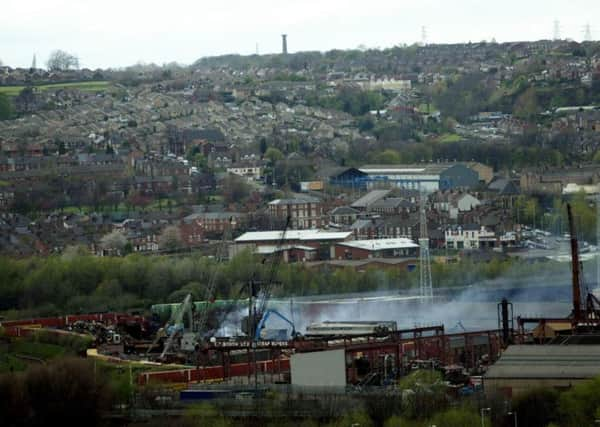Shooting the messenger: How Rotherham Council tried to blame media for their own failings


Louise Casey said some elected councillors saw media coverage highlighting horrific exploitation as the problem.
She said she found councillors had singled out award-winning chief investigative reporter for The Times Andrew Norfolk for criticism, despite the fact it had been his journalism which had given the Rotherham scandal nationwide public attention.
Advertisement
Hide AdAdvertisement
Hide AdBut her report said she found no evidence at all to support some councillor’s accusations that Mr Norfolk’s reporting was politically motivated.
She said: “Even if The Times articles had been politically motivated (though we found no evidence in the Norfolk coverage), the fact was that Rotherham Council, rather than addressing or investigating the abuse of girls and the suggested failings of the council and police, preferred to ignore what was being reported and declare it was untrue with no apparent grounds for doing so.”
Ms Casey highlighted a council report which said one young girl featured in one of The Times stories was given appropriate assessments and counselling.
She said: “This reveals extraordinary complacency in the face of very serious allegations.
“It is also untrue in relation to the victim concerned.”
Advertisement
Hide AdAdvertisement
Hide AdThe report quoted one councillor saying that she was told that Mr Norfolk “had a thing about Pakistani men” and that “the story was exaggerated”.
The councillor said: “In the early days, the message was that ‘Norfolk’s got it in for us’.”
Ms Casey also considered the role of The Times’s reporting and authority’s tendency to “shoot the messenger” when she considered whether there had been a “cover-up” at the council.
Her report highlighted the controversy surrounding a serious case review (SCR) commissioned following the murder of 17-year-old Laura Wilson (referred to as Child S) in the town in 2010.
Advertisement
Hide AdAdvertisement
Hide AdMiss Wilson was killed by her boyfriend who was jailed by a judge who said he treated white girls as “sexual targets” and not like human beings.
The SCR was published in 2012 with heavy redactions.
The Times informed the council it was planning to print some details which had been removed after getting an unredacted copy from a source.
The Times argued that the redactions sought to minimise Miss Wilson’s involvement with Child Sexual Exploitation (CSE) and mask failures on the part of professionals within the council.
But Rotherham Council sought an injunction to prevent publication.
Advertisement
Hide AdAdvertisement
Hide AdThe report was published with fewer redactions the following year.
Today, Ms Casey concluded that: “The council’s legal action against The Times commenced amidst a climate in the council that did not want Rotherham to be identified publicly as having a problem with CSE and its focus was the protection of the council’s reputation.
“The council and its staff did not see the ongoing coverage by The Times as a ‘red flag’ moment; an opportunity to get underneath what was happening and galvanise action.
“Instead, it went on the defensive and viewed the coverage as a politically motivated attempt to undermine the council’s reputation.”
Advertisement
Hide AdAdvertisement
Hide AdShe said: “The redactions could be seen to corroborate The Times’s assertion that this (the redactions) revealed failures on behalf of RMBC (Rotherham Metropolitan Borough Council).”
READ MORE...